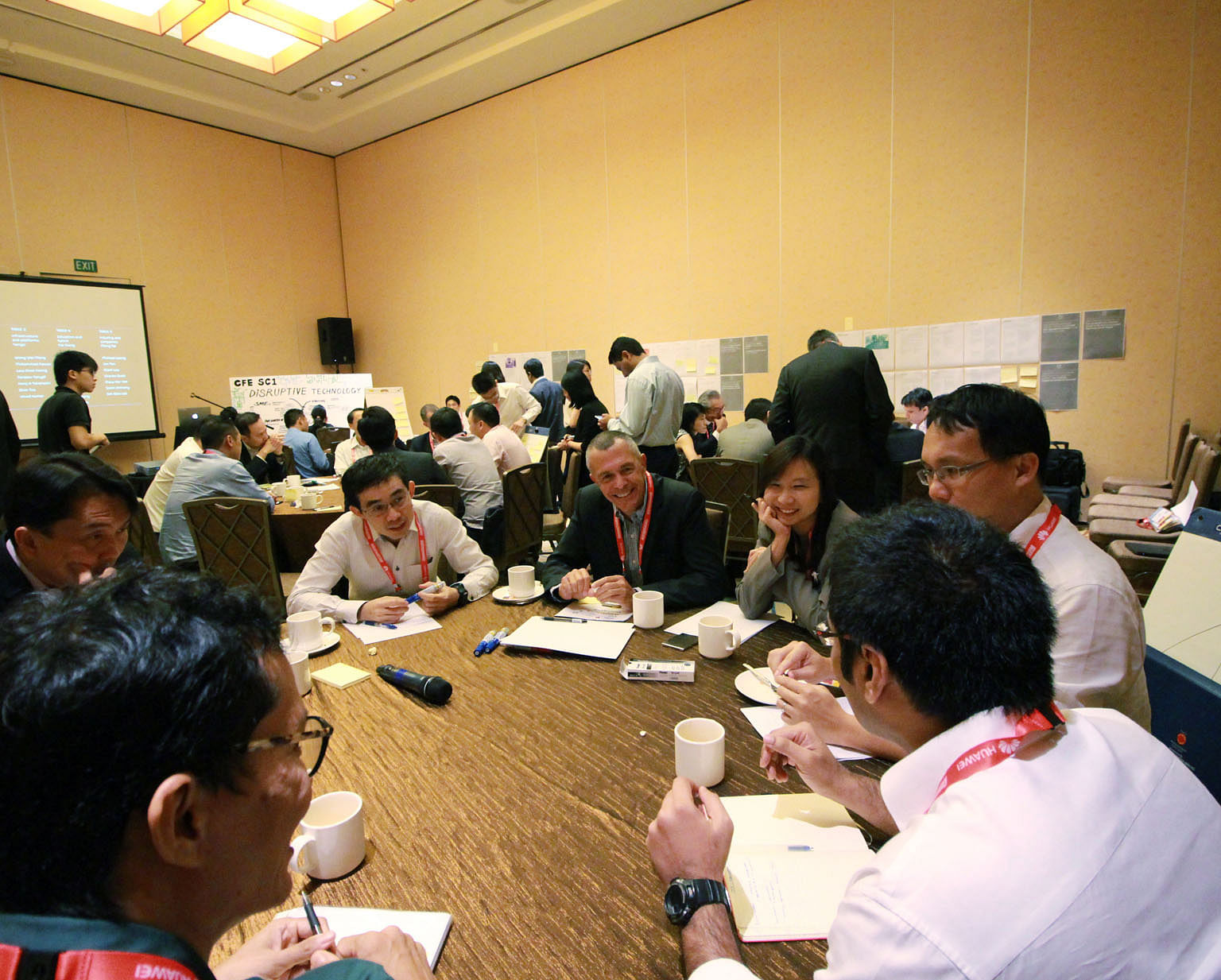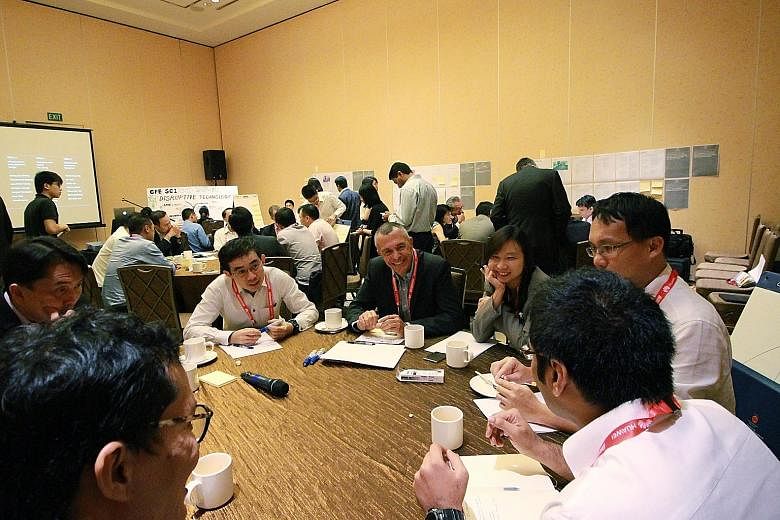The Bank of England used the words "uncertain" and "uncertainty" 123 times in its official communications throughout 2016. Closer to home, Prime Minister Lee Hsien Loong repeated the word four times in his New Year message this year. This is not surprising, given the ambiguities ahead, with profound discontent over globalisation in developed and developing countries.
Our experience with clients shows that Singapore's stable and robust business environment is an important factor contributing to the country's attractiveness and success as the preferred headquarter outpost for multinationals in the region.
The Committee on the Future Economy (CFE) was established in 2015 to identify future growth industries and markets, and help firms seize opportunities. The committee focuses on five key areas, among which the digital economy, jobs and skills for the future and innovation are three inter-related aspects where tax measures could play a part in driving progress.
At the individual level, the upcoming CFE and Budget measures are expected to heavily feature recommendations that support the transformation of the workforce into a digital-ready one.
Over the last few years, the SkillsFuture programme has created much awareness of the need for lifelong learning. If Singapore wants to successfully capitalise on the future digital economy as a major source of enterprise and economic growth, it is imperative to accelerate the development of digital talent locally and prepare our workforce for the jobs of tomorrow.
To that end, the Government can build on the momentum of the existing SkillsFuture programme, with a sharpened focus on digital capability development. For instance, based on insights on digital job creation and demands of the future economy, the Government can create a digital talent road map for students and mature workers alike, to guide them in acquiring the required skill sets.

The SkillsFuture programme can also be used to amplify companies' initiatives in preparing their workers for jobs of the future. For example, employees could be allowed to tap their SkillsFuture credits to match contributions from companies when enrolling in approved digital-centric courses. To multinational investors, such a nationwide push to bolster the local digital talent pool could confer Singapore a human capital advantage, given the shortage of such talent regionally and globally.
At the enterprise level, initiatives aimed at aggregating the demands and resources of small and medium-sized enterprises (SMEs) to enable them to be more productive, innovative and agile are useful too. For example, the Government can create a scheme where existing SMEs that pool their demands for critical enabling functions, such as training, marketing and branding, and research, to create synergies and economies of scale can tap into cash or tax incentives that offset operating costs such as rental fees.
Besides the immediate benefits of financial efficiency, the clustering of SMEs facilitates the exchange of personnel and diffusion of technology, which can spin off the cross-pollination of ideas, and more importantly, seed the spirit of collaboration among local players to win in the market.
Finally, at the industry level, the Government may want to explore how it can tweak the existing incentives and grants aimed at enhancing innovation and R&D. The current challenge lies in how best to achieve the fine balance between rewarding companies for their innovation efforts versus concerns over compliance and abuse of schemes.
The existing R&D enhanced tax deduction is heading towards the tail-end of its first decade. Accessing its benefits on a broad-based basis has been challenging, and in turn, the impact has been limited.
Protracted discussions with and multiple rounds of questioning by the tax authorities, set against the context of a rapidly changing business environment, potentially hamper the effectiveness of the scheme and disillusion the taxpaying applicant.
To avoid an overly conservative mindset towards innovation and any potential conflicts of interest, we recommend splitting the technical assessment of the R&D or innovation project from the financial aspects of claiming a tax deduction. The former can be undertaken by an appropriate subject matter government agency while the latter can be administered by the tax authority.
Having two separate parties assess aspects of the grant application that are related to their core expertise could reduce unnecessary delays arising from a lack of technical understanding and thus, the need for extended clarifications.
In addition, the cashbacks, which help to facilitate cash flow during the early days of R&D, should be enhanced, especially with the expiring of the Productivity & Innovation Credit scheme. To minimise abuse, the Government can consider having companies approach the respective economic agencies to further "validate" their R&D if they would like to trade their tax deductions for cashbacks during their start-up period. This ensures that proper controls and processes are in place and a second review is undertaken before cash is disbursed, similar to how grants are being administered currently.
Local businesses and foreign investors are looking to the Singapore Government to show leadership in providing certainty, ingenuity and boldness in its economic development policies, particularly in times of uncertainty.
Many expect the CFE recommendations to be incremental, although hopes remain for game-changing ones. There is a clear opportunity for Singapore to distinguish the merits of its pro-business and open economy - one that is sustained through having the right combination of progressive human capital development and government policy implementation that is geared for the future.
- The writer is partner, EY Asean Business IncentivesAdvisory, Tax Services at Ernst & Young Solutions LLP.

